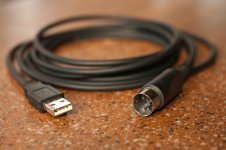KillTheAlarm
Member
I'm having trouble with my FR1 (the older model) to my PC. I connect through a usb-to-midi cable, and it recognizes midi messages. The problem is, it doesn't send more than 1 note. In other words, it's impossible to play chords - when you try to press a 2nd note, the "note on" signal is never sent for that note.
Is that a limitation of FR1 or is my cable dodgy? (I tested it with a digital piano, and it worked fine)
I looked through the entire user's manual, to no avail.
Here is my Reddit post with more details, if needed.
My ultimate goal is to be able to play VST instruments live, and to use the accordion as a midi controller.
Is that a limitation of FR1 or is my cable dodgy? (I tested it with a digital piano, and it worked fine)
I looked through the entire user's manual, to no avail.
Here is my Reddit post with more details, if needed.
My ultimate goal is to be able to play VST instruments live, and to use the accordion as a midi controller.

